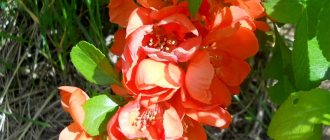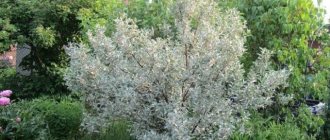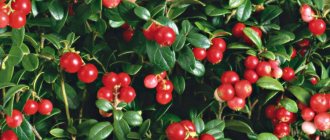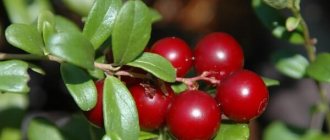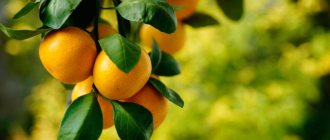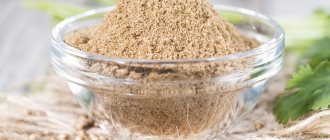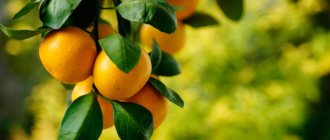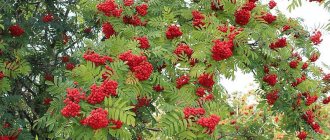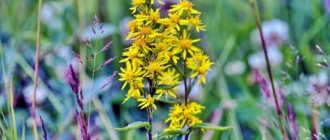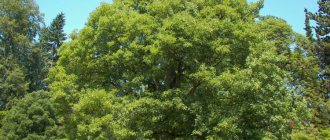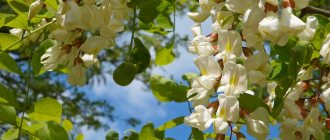The “relative” of tomato, eggplant and potatoes - nightshade - is not as often found in summer cottages as the above-mentioned crops. Many will immediately tell you that its glossy black or red fruits and berries are deadly poisonous and it is better to keep this plant away from household members, especially if there are children in the house.
Others will remember the medicinal properties of nightshade, which have been known for hundreds of years, and still others will confidently claim that they tried delicious jam from their summer residents - yes, all from the same nightshade. Who is right?
In fact, everyone is right! After all, the genus Nightshade includes more than 1000 species, and all these plants sometimes have completely opposite properties. Let's understand all this diversity together - what kind of nightshades there are and what is more of them, benefit or harm in a summer cottage.
What kind of sunberry is it?
Sunberry, or “sunberry,” is an annual herbaceous plant belonging to the Solanaceae family. The hybrid was bred by crossing creeping nightshade and African nightshade; the spreading shrub reaches about 70 cm in height. Sunberry is very similar to tomato bushes - the stems and leaves have the same structure.
Sunberry is a plant from the Solanaceae family, related to tomatoes.
Sunberry blooms in inflorescences consisting of 10-15 individual flowers. Fruiting occurs at the end of September or mid-October, and the berries are similar in size and color to blueberries or black currants. Inside the berries there are small seeds, which are also very similar in shape to tomato seeds.
Recommended reading: Benefits of tomatoes for the body
Important! Sunberry can also be found under other names - garden nightshade, Canadian blueberry and blueberry forte.
Weed or not?
Not all nightshade species can be considered weeds. These include one species - prickly nightshade. A meter-tall plant that has yellowish thorns on its leaves, stems and peduncles. One bush produces up to 180 berries, each of which contains from 50 to 100 seeds. The peculiarity of the seeds is that they remain viable in the soil for up to 10 years. Can be carried by wind over long distances. If not removed, it can crowd out all herbaceous crops.
Wild species are considered by many to be weeds due to their methods of spread: by birds that eat the berries, or by self-sowing. That is, they can appear where they were not planted or expected.
The value and composition of sunberries
Sunberry fruits are highly valued primarily in folk medicine. Small black berries contain a huge amount of valuable substances, including:
- vitamin C and carotene;
- riboflavin and niacin;
- tannins and saponins;
- iron and calcium;
- pectin and fructose;
- lipids and steroids;
- anthocyanins;
- silver and copper;
- hexuronic acid;
- bioflavonoids and chlorophyll;
- fatty acid;
- sodium, magnesium and potassium;
- manganese, selenium and chromium;
- zinc;
- fiber.
The main share in the composition of berries is occupied by carbohydrates - about 41 g per 100 g of fruit. In second place are fats, occupying about 28 g, and in third place are proteins, whose share is only 9 g.
Small Canadian blueberries are very rich in vitamins.
Calorie content
Small black fruits are highly nutritious. 100 g of sunberry contains 220 kcal, however, it must be taken into account that the berries are consumed in small quantities.
Beneficial properties of sunberry berries
Due to their rich chemical composition, nightshade fruits have numerous medicinal properties. In particular, berries:
- have an anti-inflammatory and disinfectant effect;
- have a laxative and absorbent effect;
- help stop bleeding and heal skin damage;
- tone and restore vigor;
- promote the removal of toxins from the body;
- have a beneficial effect on the liver and help its recovery;
- strengthen the immune system and prevent the development of tumors.
Also, the beneficial properties of nightshade berries are used to strengthen blood vessels and lower cholesterol, to improve the functioning of the nervous system and memory.
Health benefits of sunberry jam
Nightshade fruits are consumed not only fresh, they are often used to make tasty and healthy jam. This delicacy also has numerous valuable properties and improves health. In particular, healthy sunberry jam:
- improves the functioning of the intestines and liver;
- cleanses blood vessels from cholesterol and protects the heart from ailments;
- helps the body cope with infections; taking jam is very useful for ARVI and influenza;
- relieves headaches and muscle pain.
In the process of making jam, the fruits lose some of their beneficial properties, but they still contain many vitamins. During heat treatment, vitamin C is almost completely destroyed, so lemon is usually added to the jam, which not only increases the benefits, but also improves the taste of the delicacy.
What are the benefits of sunberry for the body?
The beneficial properties of sunberry nightshade are actively used for the prevention and treatment of ailments. Nightshade has a good effect:
- for colds and viral diseases;
- with weakened immunity and loss of strength;
- with a tendency to edema and kidney problems;
- for hypertension and high cholesterol;
- for constipation and hemorrhoids;
- for intestinal colitis and gastritis;
- with a tendency to migraines.
Sunberry has a beneficial effect on any infectious processes in the body. You can eat the berry for joint ailments; it will stop the inflammatory process, relieve pain and restore mobility.
Garden nightshade benefits the entire body when consumed
Benefits of sunberries for men
For the male body, the beneficial properties of Canadian sunberry blueberries are especially valuable. First of all, berries, when consumed regularly, strengthen blood vessels and the heart muscle, increase endurance, this is important, since it is men who are prone to early heart attacks.
In addition, sunberry has a beneficial effect on the state of the reproductive sphere. Vitamins and minerals in the fruit increase potency and prolong sexual activity. The anti-inflammatory compounds in nightshade berries help fight genitourinary inflammation and prevent the development of prostate tumors.
What are the benefits of sunberry for women?
Garden nightshade has a positive effect on the female body. The use of berries is highly recommended for painful periods; sunberry relieves discomfort and soothes pain. The iron in the composition prevents the development of anemia, which often occurs against the background of severe blood loss.
The fruits of garden nightshade have a good effect on the nervous system. If you regularly eat them, your mood will noticeably improve and your stress level will decrease. Women suffer more from psycho-emotional stress, so for them this property of nightshade is very valuable.
Can children eat sunberries?
For teenagers, garden nightshade can be beneficial; the berries strengthen the immune system and protect the body from gastrointestinal disorders. Sunberry helps schoolchildren increase focus and concentration.
However, garden nightshade often causes allergic reactions in young children. Therefore, it is recommended to offer fruits to a child no earlier than 12 years of age.
Attention! Sunberry has a list of contraindications and can cause harm to the body. Before giving your child nightshade berries for the first time, you should consult your pediatrician.
Sunberry can cause allergies, so children under 12 years old are not offered berries
What does sunberry berry cure?
The valuable properties of garden nightshade are used to treat many diseases. Although the product cannot completely replace pharmaceutical drugs, it provides a good complementary effect.
Sunberry for hypertension
For hypertension, eating nightshade berries is very useful; they equalize blood pressure, relieve headaches and have a beneficial effect on blood circulation. In addition, to treat hypertension, you can prepare a remedy from the stems and flowers of sunberries collected during the flowering period - the green raw materials are crushed and mixed with honey.
For eyes
The beneficial properties of sunberry help protect visual acuity and prevent the development of cataracts and glaucoma. Sunberry can be used for mechanical eye injuries and inflammatory processes; in all cases, the berries will have a beneficial effect.
Nightshade fruit extract is included, among other things, in the well-known drug “Blueberry Forte”. The vitamin supplement is not an independent medicine, but has a proven beneficial effect.
For joints
The anti-inflammatory and analgesic properties of nightshade are in demand in the treatment of joint ailments - rheumatism, arthritis, osteoporosis. In addition to eating sunberry, it is recommended to take infusions from the flowers and leaves of the plant.
It is very useful to combine treatment with baths with the addition of sunberry. They are made like this: add 100 ml of fresh nightshade juice and 50 g of fresh horseradish gruel to a filled container. You need to take such a bath for no longer than half an hour, and the total course of treatment consists of 13 procedures; usually, noticeable relief occurs in the second week of therapy.
The fruits have anti-inflammatory and healing properties
For iodine deficiency
Sunberry fruits contain iodine; it is very valuable for the thyroid gland, but it is often in short supply among residents of the central and northern regions. The greatest benefit comes from this remedy:
- 2 cups of nightshade berries are poured into a blender;
- add 1 cup feijoa;
- crush the fruits and pour a glass of liquid honey into the pulp.
Take the medicine by spoon before breakfast and shortly before lunch. Therapy is continued for an average of about 2 weeks, then a break is taken.
For abscesses, purulent wounds
Sunberry can be consumed externally to treat inflamed wounds and abscesses that do not heal for a long time. Compresses are used to restore the skin; the greatest benefit comes from sunberry in combination with egg white. You can also mix nightshade fruits with fermented milk products. In both cases, the vitamins in the berries will speed up the skin healing process and help relieve inflammation.
For sore throat
The antibacterial properties of the sunberry plant have a positive effect on inflammation of the tonsils. Vitamin C and other components help quickly get rid of sore throat, cough and fever.
It is recommended to use sunberry not only internally, but also in the form of rinses. Berry juice is diluted with water in a ratio of 1 to 3 and treated for a sore throat up to 5 times a day.
With a decrease in body tone
Sunberry fruits have a very high concentration of nutrients. It is recommended to use them for symptoms of vitamin deficiency, during the period of recovery from illness and during a seasonal decrease in immunity and tone.
Sunberry has a good strengthening effect in combination with honey and nuts
A mixture of nightshade berries, honey and nuts is considered especially valuable. About 3 cups of fruits should be mixed with a glass of pine nuts, crushed in a blender and poured with honey. Take a large spoonful of the mixture shortly before meals; after a few days you will feel a noticeable surge of strength.
Sowing seedlings
Exotics cannot be called very easy to grow. Canadian blueberry seeds will require some work from the gardener to increase their germination rate.
Seed treatment before planting
So, before planting at the end of February, the seeds must be soaked in warm water for at least 20 minutes so that the shell swells. After this, the seeds are placed in a container with coarse calcined sand and shaken vigorously several times.
This action is necessary to thin the seed coat and increase the germination rate. Sand-treated seeds are washed and placed on a damp cloth. Fabric with seeds can be placed on the battery for pecking.
When to plant blueberry forte seedlings
The optimal time for planting seeds is late February - early March . Typically, Canadian blueberry seeds are sown at the same time as tomatoes.
Growing seedlings
Further, planting seeds is no different from sowing other crops for seedlings:
- universal loose soil is poured into a shallow container;
- moisten it with a spray bottle;
- seeds are embedded in the soil no more than half a centimeter in increments of 1–1.5 cm between plantings;
- the container is covered with film or glass and placed in a warm, well-lit place;
- Every day the cover is removed for 10–15 minutes for ventilation, the soil is moistened as necessary;
- after germination (usually by the end of the second week), the cover is removed.
Picking seedlings
When growing sunberries in a common container, the plants will need staking . The procedure is carried out after at least two true leaves have formed on each sprout.
For replanting, you can take small pots or disposable glasses, having previously made drainage holes in them.
Before picking, water the soil in the container generously: this will reduce the risk of damage to the roots.
Rules for using sunberry berries for medicinal purposes
Traditional medicine offers several recipe options using sunberry. Nightshade berries are used to prepare infusions, decoctions and compresses for external use; in all forms the product is beneficial.
Compress for skin diseases
For psoriasis, seborrhea and dermatitis, homemade ointment has a good effect. They do it like this:
- break 2 chicken eggs;
- add 100 ml of fresh juice squeezed from sunberry leaves;
- mix with 2 tablespoons of juice squeezed from nightshade berries;
- Apply the mixture to clean gauze and apply to the affected area.
You need to keep the compress for about 40 minutes. The active substances in nightshade relieve inflammation and accelerate healing, while egg yolk and white soften damaged skin.
Infusion for stomach pain
For gastritis and other negative processes in the stomach, berry infusion brings relief. To prepare it, you need to take 100 g of a mixture of nightshade fruits and leaves, add 500 ml of hot water and hold under the lid until the infusion has cooled.
Use the product several times a day, 150 ml; it is better to drink the infusion on an empty stomach.
Infusion for asthma
Garden nightshade berries provide relief from bronchial asthma. To prepare a medicinal infusion you need:
- mix equal amounts of sunberry fruits, dried nightshade flowers and lungwort stems;
- measure 1 large spoon of the mixture and pour 500 ml of boiling water into a thermos;
- leave for 2 hours, and then filter through cheesecloth.
Take the medicine with a large spoon on an empty stomach, no more than 3 times a day.
Medicines are prepared from the fruits of Canadian blueberries - decoctions and infusions
Problems during cultivation
Although nightshade is an unpretentious plant, some difficulties in its maintenance still exist:
- Poor fruiting or lack thereof. This is caused by insufficient pollination during the flowering period. If the plant is not taken out into the open air, it is recommended to pollinate it artificially. For these purposes, use a soft brush, with which pollen should be transferred from one flower to another. To consolidate the effect, the procedure is carried out several times.
- Nightshade sheds leaves and berries. The cause may be drafts, sudden temperature changes or heat. To eliminate these troubles, you just need to find a more suitable place for nightshade.
- Pests. Insects can also cause inconvenience to the plant: whiteflies, aphids and spider mites. Those plants that are kept in dry air conditions are at risk. When you detect the first signs of an insect attack, you should treat the plant with appropriate chemicals or use folk remedies (if the damage is not severe)
Rules for treating sunberry berries
The fruits of garden nightshade are an effective remedy with numerous beneficial properties. But when using berries you must adhere to some rules:
- Sunberry has laxative properties - it is not without reason that the berries are used to treat constipation. When consuming vitamin mixtures and infusions based on nightshade, you must strictly follow the dosage - exceeding the recommended norms can lead to digestive upset.
- Sunberries have a sedative effect. This makes them a good sedative, but imposes certain restrictions on use. It is not recommended to take fruits and products based on them before driving, or before intense mental work; mild drowsiness may occur.
- Although sunberries can be used in a diet to cleanse the body of toxins, you should not overuse the fruits; they are quite high in calories. The maximum daily intake of fresh fruits is no more than 2 handfuls.
- Sunberries must be thoroughly washed before eating or cooking. Dust and dirt on the fruits greatly reduce the benefits of the medicinal plant.
- Sunberry-based decoctions and infusions are recommended to be prepared using hot, but not boiling, water. This way, more valuable properties are retained in the fruits and fewer vitamins are destroyed.
- In total, you should consume the fruits of garden nightshade for no longer than 14 days in a row. If you exceed the time limit, the effectiveness of treatment will decrease, and in addition, digestive problems may appear due to the laxative effect of the berries.
Advice! It is best to use ripe sunberries for treatment. Although the question of whether green nightshade is poisonous or not is still controversial among gardeners, the benefits of green berries are definitely lower and the taste is worse.
Botanical description
Causing so much controversy, the black nightshade plant is the closest relative of the eggplants, potatoes, and tomatoes we all know. In appearance, it even looks a little like some varieties of tomatoes, especially when its sprouts just sprout. And its flowers and green berries look like potatoes. Only it does not form tubers. The plant reaches a height of up to a meter, sometimes a little higher, sometimes a little lower. What does black nightshade look like? The description is as follows: its stem is herbaceous, erect, branched, but not curly or creeping, like that of bittersweet (red) nightshade. The leaves are toothless, oval, but pointed at the end. Flowers like potatoes. Their petals are white or blue-violet. The seeds are also almost like tomatoes, only smaller. The berries are the size of an average pea and turn black when ripe. Their taste is difficult to describe in words - slightly sweet, slightly sour, have a characteristic smell, not too juicy, but not porridge either. In short, unique. And absolutely harmless! You have no doubt about it.
Restrictions and contraindications
In some cases, the use of sunberry for medicinal purposes should be completely abandoned. The fruits have contraindications; in particular, they are not recommended for consumption:
- in case of individual allergies, in this case the product will only harm the body;
- during pregnancy, sunberry provokes additional contractions of the uterus, which can lead to miscarriage or premature birth in the later stages;
- during lactation, substances in the fruit may harm the infant;
- if you are prone to diarrhea, nightshade fruits are often used to treat constipation, but if you have frequent stool disorders, it is better not to use the berries.
Berries have few contraindications, but they need to be used in small quantities
A one-time or long-term overdose when eating berries leads to such an unpleasant condition as hypervitaminosis - an excess of vitamin substances in the body. Hypervitaminosis is expressed in skin rashes, headaches, nausea and heart rhythm disturbances. If side effects occur, treatment with berries should be stopped immediately and wait until the excess vitamins leave the body.
Beautiful decorative varieties
But a separate group should include decorative nightshades, which can be dangerous, but are an excellent solution for landscaping a backyard area. Some excellent options for site decoration include the following varieties:
- jasmine;
- papillary (female fruit, apple of Sodom, fox face, five-fingered eggplant);
- gigantic;
- curly (Chilean potato tree).
For decorative purposes, it is proposed to cultivate false pepper nightshade. It is also known as Christmas or Jerusalem cherry. No less beautiful are the nightshades of Rantonnetta, Seaforth, and Wendland.
